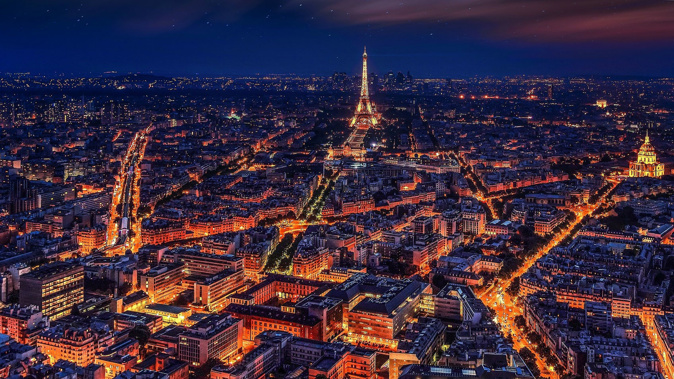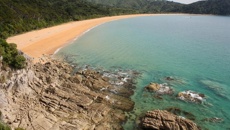
Bookended by two big burly hurricanes, Harvey and Irma, with North Korea’s nefarious provocations wedged in between, the past week’s international news has certainly been busy. Maybe that’s why the latest Europe travel alert hasn’t managed to make much of a splash in the headlines. But the US State Department has just refreshed its official travel advice for Europe, alerting travellers of a heightened risk of terror attacks in Europe.
The original alert was imposed in May for the European summer, ahead of the appalling atrocities in Manchester, London and Barcelona, but that’s now been reinstated until the end of November. The State Department claims there is credible evidence that ISIS is inspiring or directing fresh attempts at wreaking havoc. Meanwhile, Britain’s Foreign Office has issued “high risk” alerts for several European countries, including Belgium, France and Germany.
The official advice warns that attempted attacks are very likely in those countries, although British officials concede that the threat of attack on home soil is also “severe.” What about our government? The Ministry of Foreign Affairs operates the Safe Travel website and it’s fascinating to see where our officials advise what countries should be given the wide berth. Our government advises Kiwis to avoid all travel to vast swathes of Russia, Turkey – including Istanbul and Ankara, and Ukraine. They are the classified as Extreme or High Risk. Much of Europe is classified as posing “Some Risk”. www.safetravel.govt.nz
But across the world, there is a clear and consistent pattern to the travel advisories on Western Europe. They are particularly concerned about Belgium, France, Germany, Spain and the UK. It is worth noting that global travel advisories consider the likes of Ireland, Switzerland, the Czech Republic, Croatia, Portugal, Hungary, Poland, Greece and Malta at far less risk. And unlike many of her neighbours, Italy hasn’t fallen prey to an ISIS-inspired attack. So if you are feeling a little anxious about enjoying Europe, there’s plenty of countries that are considered very low risk propositions for terror.
Media company, Travelzoo, recently published research indicating these travel alerts do strongly influence over 90% of people’s decisions about where they choose to holiday. But people are also very resilient. Following the Paris terror attacks last year, visitor numbers only dropped by 8%. And this year, tourist numbers to the French capital have bounced back, up 14%. And I strongly subscribe to the theory that if we allow ourselves to be paralysed by fear, the bad bastards win. We can’t be complacent about basic safety, but neither should we allow evil to force us to stay at home in some sort of siege mentality.
Just look at the cold hard metrics. The Washington Post recently published that the odds of being killed by a terrorist while travelling overseas or in-flight are 1 in 20 million, based on the past year’s global death toll. The newspaper compared that to your odds of being struck by lightning as 1 in 10 million. In New Zealand, the odds of winning Lotto’s First Division Powerball, with an eight-line ticket, is 1 in 4.8 million. Europe’s uptick in terror attacks has reduced the region’s probability index to 1 in 3.2 million, based on the past year’s terror strikes.
But if you want to play it extra safe, security experts have identified some simple, practical tips. For example, the upswing in terrorists weaponising cars and ploughing them into crowds of pedestrians has raised some big questions about situational awareness. Some victims in Barcelona, London and Berlin were wearing headphones and oblivious to what was happening around them, while others swiftly took evasive action after hearing the roar of the engine. A split second’s reaction time can be the crucial difference. Top tip? Don’t wear headphones and zone yourself out from your surroundings, when walking in public.
Following the Las Ramblas attack, personal security experts are also advising people never to walk in the middle of a crowded pedestrianised street. Stick to the sides. Another practical tip has been underscored in the wake of the Westminster and London Bridge attacks. Always walk on the side of the road that faces traffic coming towards you. Most bridge victims in London were struck from behind.
Other top tips from global security consultants include making sure you have a flashlight app on your cellphone; always wear appropriate shoes when out in public, in case you find yourself having to walk over glass or debris (leave the jandals for the beach); keep your phone fully charged; and read people. If a terrorist is about to carry out an attack, they’ll be acting strangely, probably fidgety, sweaty and scared. If it’s a hot summer’s day, and the individual is wearing particularly thick layers, that should raise concern.
You will have noticed that nearly all recent mass-casualty terror attacks in Europe have targeted the big cities. Paris. London. Berlin. Nice. Manchester. Barcelona. Brussels. Istanbul. Second-tier cities and smaller towns have not been on the radar. And I have to say that when I’m flying to or within Europe, the second-tier airports offer a far less stressful experience.
A good example is Bologna, in the heart of Tuscany and a hassle-free gateway into Europe. Emirates flies there. Ditto for Dublin and Frankfurt. And if you’re flying to Britain, from within Europe, rather than messing about in the choking security lines at the likes of Heathrow, Gatwick and Charles de Gaulle, opt for the second-tier airports like Pisa and Bristol, which are far more user-friendly.
The scourge of mass-casualty acts of terror have become an insidious fact of life. And no one is anticipating Europe will be completely freed from this menace in the foreseeable future. We can’t be complacent or fool-hardy, but neither should it puncture our sense of adventure nor our love of travel.
Mike Yardley is our Travel Correspondent on Jack Tame Saturday Mornings.
Take your Radio, Podcasts and Music with you









